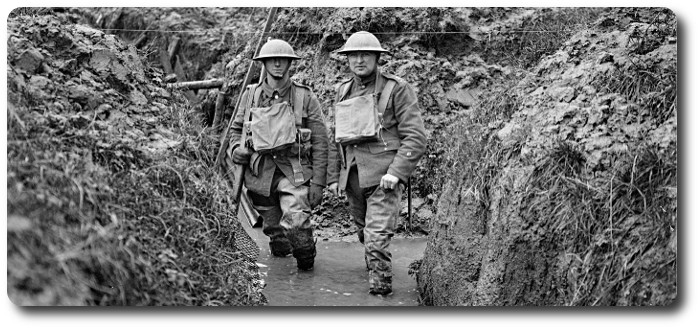Topic: CEF

The Futility of the First World War
Trench Warfare, 1850–1950, Anthony Saunders, 2010
Although this article isn't specifically about the CEF, it has been tagged as such to keep it with other First World War material.
The popular view that the First World War epitomized the 'futility' of war, that it embodied the stupidity of obstinate generals who willfully sacrificed their men and that the horrors of trench warfare could have been avoided, is one that is very resistant to any evidence to the contrary. Indeed the notion that the First World War, the Great War, the war to End all Wars, was an aberration in which warfare descended into a kind of madness in which men were slaughtered in their thousands for a few square yards of ground is a view derived not so much from the actuality of what happened but from popularist versions of it fostered by memoirs published ten years after the war. Not least among those who claimed that the war had been generaled by the incompetent, but fought by heroes, was David Lloyd George, who fostered the view that so many deaths had not only been unnecessary but avoidable had the generals, Haig in particular, paid heed to his wise council. In the face of such 'evidence', it has always been very difficult to disprove such 'truths' as unnecessary sacrifice and futility. The anti-war sentiment is very much a British issue, however. The French, for example, do not hold such iews even though they suffered many more casualties than the British. The First World War was far from futile and the very antithesis of an aberration in military affairs.
There is no question that the First World War was unlike any previous war. Its scale and its intensity, the industrialized totality of the war and the four-year mutual stalemate that existed along the Western Front, the principal focus of the wart made the First World War unique in the history of warfare. However, unique does not equate with aberrant any more than stalemate equated with stasis. Indeed not only was the stalemate on the Western Front entirely predictable, although not while working to prevent each other from attaining that mobility, ensured that the Western Front was constantly changing. The dynamics of this process of change were complex but, by 1917, effective solutions to stalemate were being developed. By the spring of 1918, a new form of warfare had evolved. The nature of warfare was fundamentally altered by the need to overcome the stalemate of trench warfare on the Western Front. So profound were these changes that they formed the basis of the tactical doctrines employed in most armies across the world thereafter. It is a simple truth that this could not have occurred had the generals been quite so stupid and the fighting quite so pointless as the myth of the futility of the First World War dictates.
Predictable though the stalemate of the Western Front might have been, there is a gulf of difference between foreseeable and avoidable. While it is true that no army went to war in 1914 with the intention of remaining entrenched for four years, neither was any army trained to avoid this happening.

